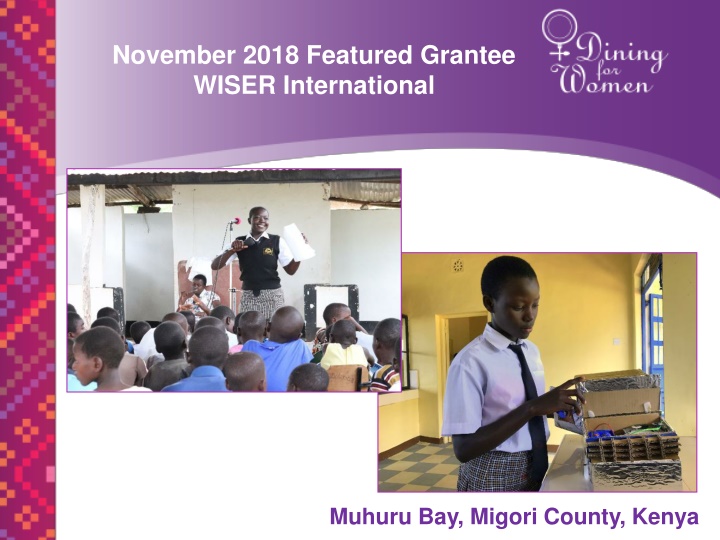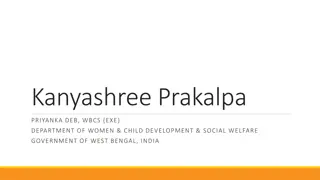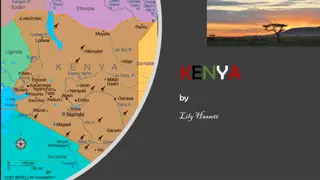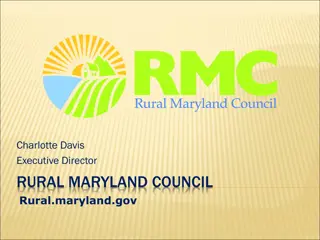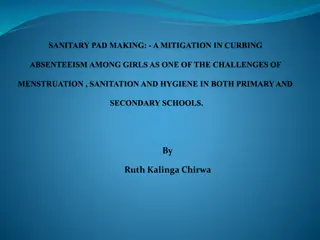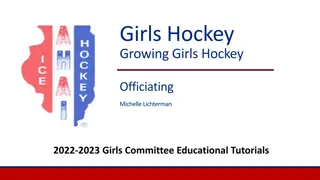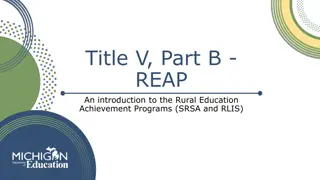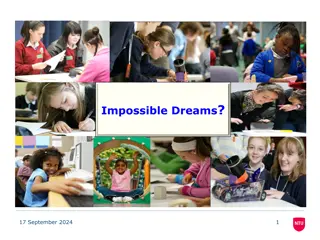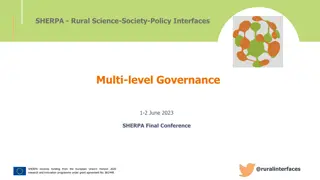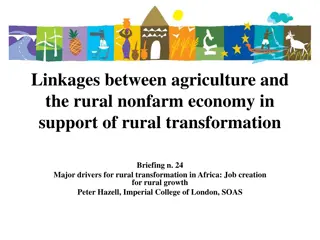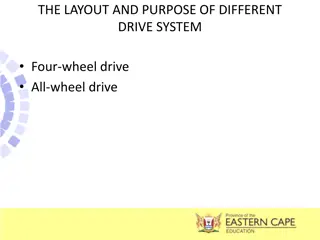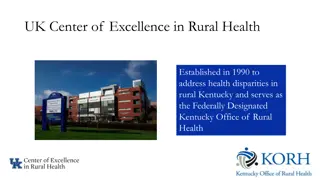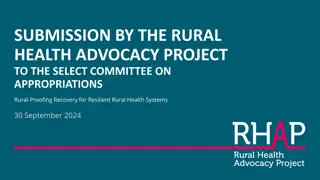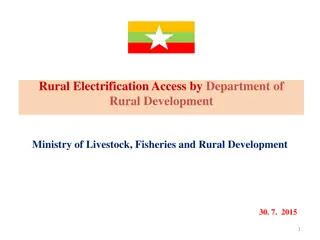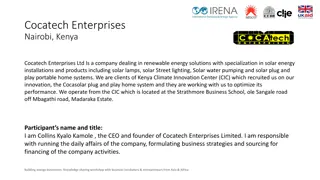Empowering Girls in Rural Kenya to Drive Change
WISER International in Muhuru Bay, Kenya, empowers young women to combat HIV/AIDS and gender-based violence, addressing economic, educational, and health challenges faced by girls through systemic change for a brighter future. Parents' beliefs in dowries over education, high rates of child marriage, poverty, and limited access to schooling contribute to the struggles girls face in achieving agency and success. The project aims to impact 975 directly and 16,000 indirectly by increasing girls' sexual, economic, and interpersonal agency in rural Kenya.
Download Presentation

Please find below an Image/Link to download the presentation.
The content on the website is provided AS IS for your information and personal use only. It may not be sold, licensed, or shared on other websites without obtaining consent from the author.If you encounter any issues during the download, it is possible that the publisher has removed the file from their server.
You are allowed to download the files provided on this website for personal or commercial use, subject to the condition that they are used lawfully. All files are the property of their respective owners.
The content on the website is provided AS IS for your information and personal use only. It may not be sold, licensed, or shared on other websites without obtaining consent from the author.
E N D
Presentation Transcript
November 2018 Featured Grantee WISER International Muhuru Bay, Migori County, Kenya
Introducing WISER International HEADLINE GOES HERE Text goes here Text goes here Text goes here Text goes here HIV/AIDS, and gender-based violence by creating environments that empower young women to drive change in their communities. WISER works with girls to transcend poverty,
Where in the world? Kenya s population is nearly 48 million More than 40% of Kenyans are under 15 because of sustained high fertility, early marriage and childbearing, and an unmet need for family planning 36% of the population lives below the poverty line. 1.5million people live with HIV/AIDS
Life Challenges of the Women Served Girls face limited economic mobility, alarmingly high rates of HIV, and local schools that perpetuate gender- based violence while remaining cost-prohibitive for many. HEADLINE GOES HERE Girls in Muhuru Bay are have poorer health outcomes, lack schooling, and are disempowered due to the combination of entrenched barriers they face. Text goes here Text goes here Text goes here Text goes here poverty, child marriage, child pregnancy, orphanhood from AIDS, or gender-based violence. Only 7% of girls complete secondary school due to
Life Challenges of the Women Served Parents often believe their daughters dowry to be worth more than her education. An estimated 57% of girls in Migori County are married before age 18. Fifty percent of sexually active girls ages 10-16 in Muhuru Bay resorted to paid sex to obtain resources essential to education. In a community with an estimated HIV prevalence of nearly 30%, girls are putting their lives at risk just to stay in school.
What are we supporting? This project s main goal is to increase the sexual, economic, and interpersonal agency of girls in rural Kenya. Addressing systemic barriers for girls through this project means changing economic, educational, and health outcomes for generations. Direct Impact: 975 Indirect Impact: 16,000
Budget DFW s grant of $49,402 will be used for the following: Item Description Total $29,580 Healthy Environment Includes $2,161to support clean water, $26,218 for healthy meals, and $1,200 for essential medicines and treatment Textbooks, school supplies, and laboratory equipment and chemicals Alumni mentoring event Sexual and reproductive health outreach Academic and athletic competitions, Science and Engineering Club, East African Girls Leadership Summit HEADLINE GOES HERE Academic Resources $10,545 Text goes here Text goes here Text goes here Text goes here Leadership Development Alumni Support Community Outreach $2,500 $2,000 Experiential Learning and $4,777 TOTAL EXPENSES $49,402
About the Featured Grantee WISER was co-founded in Muhuru Bay, Kenya in 2007 by Dr. Rose Odhiambo of Egerton University in Njoro, Kenya and Dr. Sherryl HEADLINE GOES HERE Broverman of Duke University in Durham, NC. Text goes here Text goes here Text goes here Text goes here minimal formal education and extreme levels of poverty. Over 40% of WISER girls are orphans, the majority due to HIV/AIDS. WISER s core programs holistically target adolescent girls ages 14 - 18 from families with
Share Your Thoughts 1. How important is WISER s holistic approach to the success of this project? 2. What impact does community buy-in have on HEADLINE GOES HERE girls education? 3. How do you think this program will impact the region in the years to come? Text goes here Text goes here Text goes here Text goes here
